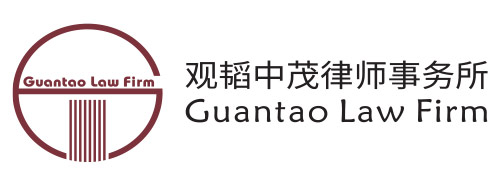With an ESG wave sweeping the globe, China’s state-owned enterprises have responded by entering a new era of compliance
ESG (environment, social and governance) performance has become a theme of our time that China’s state-owned enterprises (SOEs) cannot afford to overlook.
In his report to the 20th National Congress of the Communist Party of China (CPC) last year, President Xi Jinping pledged to “improve the people’s well-being and raise the quality of life”, and “pursue green development and promote harmony between humanity and nature”.
He emphasised a need to focus on the impacts of economic development on the environment, society and other places. In addition, at last May’s China-Central Asia Summit, countries reached a consensus on implementing green measures to mitigate the effects of climate change, and agreed to co-operate on green and low-carbon development.
Following the establishment of the Bureau of Social Responsibility at the State-owned Assets Supervision and Administration Commission (SASAC) in March 2022, the Measures for the Compliance Management of Central Enterprises were implemented on 1 October 2022.
These actions place increased pressure on SOEs to act on ESG. This article analyses the legal risks SOEs may encounter in ESG compliance and discusses the building of a compliance system.
Understanding ESG
ESG is an investment concept. For enterprises, it presents an opportunity to develop corporate evaluation criteria regarding their environmental impact, social responsibility and governance mechanisms’ performance. By regularly evaluating the three factors, enterprises are encouraged to improve their environmental performance and reduce environmental risks, be socially responsible, and strengthen internal governance.
SOEs should integrate ESG issues like sustainability and the “double carbon” policy into their corporate culture and values. In the long term, enterprises that successfully achieve this will be able to transition from being ESG compliant to letting ESG guide them forward.
Risk analysis

Partner
Guantao Law Firm
Tel: 13811531770
E-mail: songjia@guantao.com
ESG is both a regulatory requirement and a sought-after hotspot in the market. SOEs that undertake ESG often do so with good intentions, hoping to fulfill their social responsibility and increase brand recognition through ESG practices.
However, SOEs must be vigilant and stay in line with the law and regulations to avoid ESG compliance risks. If an enterprise does not behave in an ESG-compliant manner but tries to project a positive image by using exaggerated or misleading advertising and marketing, it will surely cross the compliance red line.
SOEs should check their compliance systems against ESG-related regulatory policies and improve their ESG management by screening and addressing existing risk items.
Building a compliance system
The SASAC’s compliance management measures provide central enterprises with clear guidelines and requirements for building compliance systems. The measures also clarify that local state-owned assets supervision and management agencies should use the measures as a point of reference to strengthen their compliance management. As such, both central and local SOEs are required to build ESG compliance systems in accordance with the measures.

Partner
Guantao Law Firm
Tel: 15029988088
E-mail: lihw@guantao.com
Organisational structure. A corporate ESG compliance system should be structured with three levels – decision-making, management and executive – with clearly defined respective functions. The decision-making level is the board of directors; a special ESG compliance committee can be set up, as necessary. This level is mainly responsible for developing a strategic ESG design, solving resource allocation problems and making major decisions.
The management level should include general managers and compliance officers who are primarily responsible for formulating the strategic plan and specific policies of ESG compliance, and determining the ESG compliance management process.
The executive level should include a legal affairs department or compliance management department, as well as various business departments, primarily tasked with executing ESG compliance regulations and procedures, collecting compliance risk information, and implementing relevant work requirements.
Management policy. SOEs should establish internal standards, systems and norms for ESG compliance management as the basic requirements for business development and employment performance.
Laws and regulations related to the business should be internalised into an enterprise’s internal compliance system, including the Environmental Protection Law and the Law on the Prevention and Control of Environmental Pollution by Solid Wastes in the area of environmental protection, the Work Safety Law and the Product Quality Law in the area of social responsibility, and the Code of Corporate Governance for Listed Companies in the area of corporate governance.
However, not all ESG-related laws and regulations may be relevant; enterprises should choose the applicable ones based on their own circumstances.
Risk handling. SOEs should have appropriate systems for handling potential ESG compliance risks, mainly including responding to customers and regulators.
For customers, enterprises should set up response mechanisms with an efficient application acceptance and processing procedure for dealing with customer rights requests, minimising harm to customers and providing them with a superior interactive experience.
For regulators, enterprises should proactively establish communication channels with authorities, and stay updated on the latest regulatory requirements and enforcement trends. If any ESG compliance risk incident occurs, enterprises should co-operate actively with the regulatory agencies’ investigations, seeking to reduce or exempt related administrative penalties.
Li Huiwen is a partner at Guantao Law Firm. She can be contacted at 15029988088 or by e-mail at lihw@guantao.com
Song Jia is a partner at Guantao Law Firm. He can be contacted at 13811531770 or by e-mail at songjia@guantao.com

19/F, Tower B, Xinsheng Plaza
No.5 Finance Street, Xicheng District
Beijing 100032, China
Tel: +86(10)66578016
Fax: +86(10)66578066
E-mail: wangf@guantao.com





















